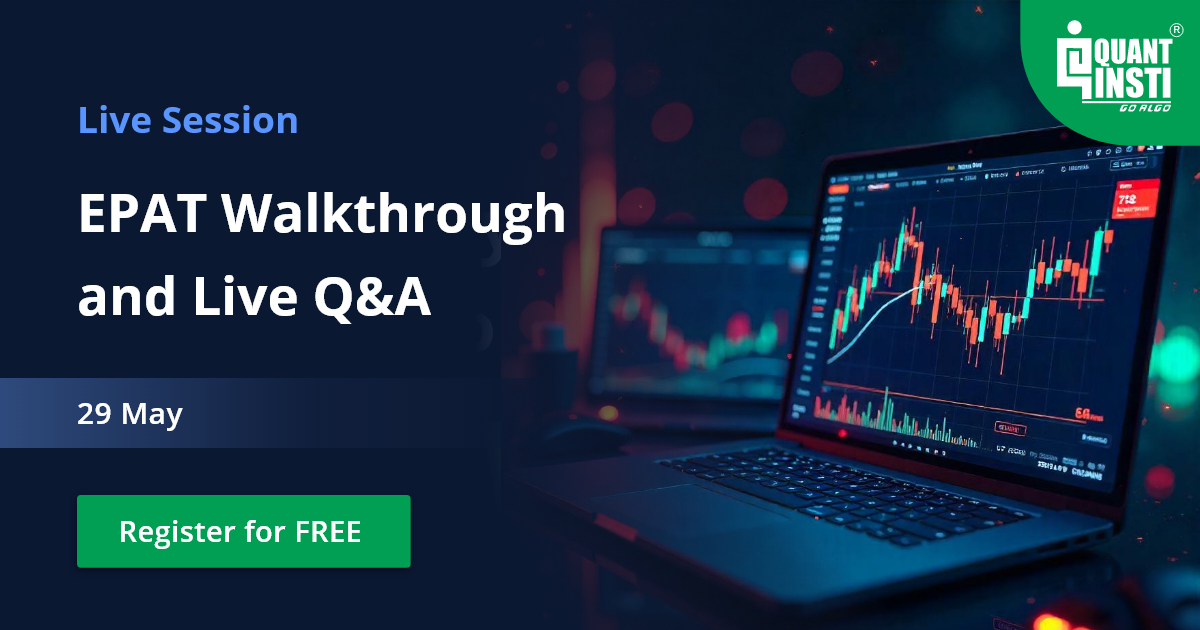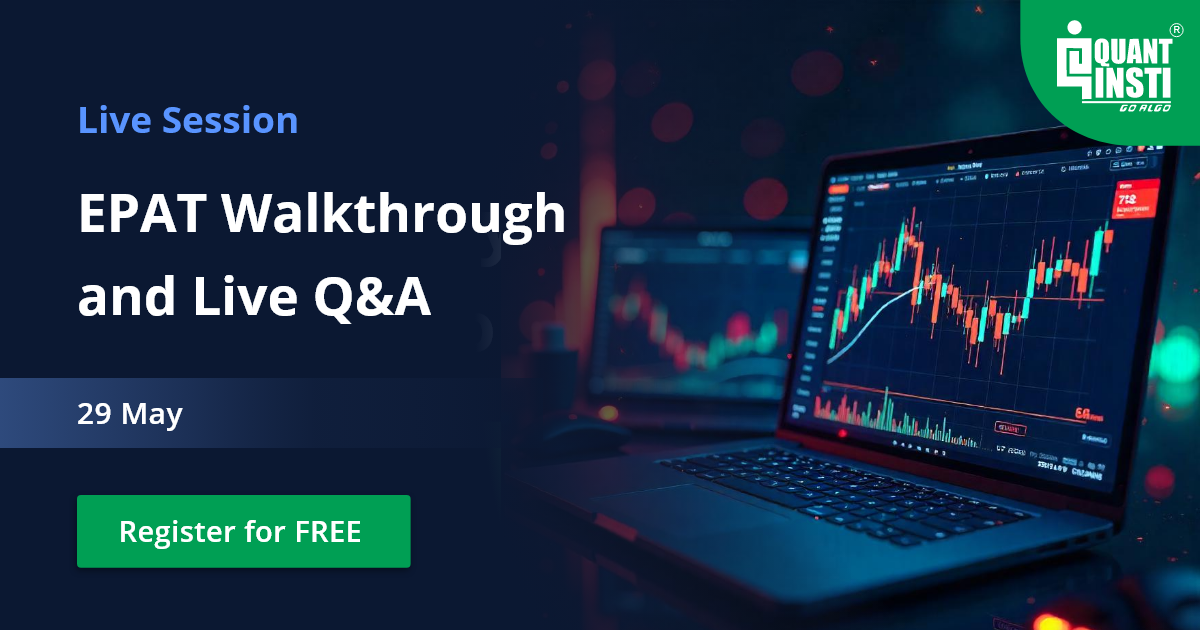Event Summary
Recently National Stock Exchange (NSE), the biggest stock exchange of the India conducted a series of 2-day workshops on Algorithmic Trading in Mumbai and Kochi. These workshops were a part of the Management Development Program started by NSE. These sessions were conducted for senior management of Financial Institutions and participants included Directors, CXOs and other senior management of such institutions. The sessions were conducted for professionals already exposed to Algorithmic Trading, and therefore these sessions explored advanced concepts and finer details of algorithmic trading.
In the dynamic and technology intensive markets of today, Algorithmic Trading is an intrinsic part of trading and has been widely embraced across the financial market spectrum - be it to maximise profitability, facilitate scalability or to improve portfolio and risk management.
The Management Development Program on Algorithmic Trading proved to be a great success as participants got first hand practical experience from some of the finest faculty in the industry. They also gained a diverse and detailed understanding about the qualitative, quantitative and technological aspects of algorithmic trading.
The programs were conducted by Suneeth Reddy, Shaurya Chandra, Rajib Ranjan Borah and Aditya Sihag who are veterans in the algorithmic trading domain in India. Currently, they are members of iRageCapital Advisory Services and also faculty of QuantInsti Quantitative Learning Private Limited.
Program Overview
NSE presents a comprehensive workshop on Algorithmic Trading for analysts, dealers, traders, consultants, and other market practitioners. The course provides an opportunity to learn Algorithmic Trading. The faculty for the program are esteemed directors and faculty of QuantInsti Quantitative Learning Pvt Ltd. Over three years of teaching experience in this field and industry experts and practitioners, QI faculty will give you a comprehensive understanding of this domain during these two days. It is a very good starting point for those who are completely new to the field.
Different types of algorithmic trading strategies
- High/ultra high frequency strategies
- Execution strategies: TWAP, VWAP, IS, etc
- Alpha seeking strategies: - market-making, arbitrage
- Different types of arbitrage strategies (structural and statistical)
- Equity segment strategies: Index Arbitrage, Mean reversion, momentum, technical analysis, pair trading
- Option Strategies: Dispersion, Volatility Spreads, Variance Swaps, Jelly Rolls, Skew trades
- Multiple exchange strategies: Smart Order Routing strategies
- Order Book Dynamics based trading strategies
- What are different global firms doing?
Process of developing an algorithmic trading strategy
- Entire life-cycle involved in designing & operating an algorithmic trading strategy
- Working with high frequency data - managing tick databases
- Normalizing and cleansing data
- Hypothesis formulation
- Machine learning methodologies to automate strategy development
Rules and Regulations
- Auditing Process and Requirements (NSE defined)
- SEBI recommendations on audit
- Exchange audits
- Technology and System audits
- Compliance Requirements
- Strategy approval process for Indian exchanges
- Global trends in regulations
Risk Management specific to Algorithmic Trading
- Risk Management for Trading Operations - different sources of risk, evaluation methodologies to quantify and set limits
- Additional Risk Management issues in Automated Trading
- Common errors encountered in Algorithmic Trading
- Case studies of all major failures globally on Algorithmic Trading
- Risk Management requirements for Indian Exchanges
Building Quant Tools
- Statistical big-data analytics using R
- Using R with Excel
- Practical exercise to build Options Portfolio Management Tools for algorithmic trading
Working on Algorithmic Trading Platforms - I
- Complex Event Processing on Algorithmic
- Trading Platforms
- Working with exchange simulators and testing strategies
Performance Evaluation and Portfolio Management
- Determining profitability of strategies using Sharpe ratio, Sortino ratio, Jensen's alpha, RaROC, Treynor Ratio, etc
- Leverage Space Theory to allocate resources across strategies
Next Step
If you’re a retail trader or a tech professional looking to start your own automated trading desk, start learning algo trading today! Begin with basic concepts like automated trading architecture, market microstructure, strategy backtesting system and order management system. You can also enrol in EPAT, one of the most extensive Algo trading training programme available in the industry.
Event Photos










